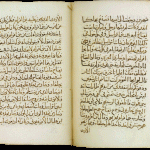The linguistic unit *GL-*LG is probably the most important linguistic unit for Europeans as a significant part of their ancient history is documented in the two Stone Age biliteral roots and their compounded and triliteral extensions. Those who may want to look into this critical linguistic unit may find their best etymology sources in Akkadian and Ancient Arabic including certain texts in the Quran.
Therefore, angel, is unlikely to have anything to do with *GL and it may be investigated separately while taking into account the possibility it is of Sumerian origin given a number of well-known meanings such as “great, reverend, respected,” etc., and included in famous proper nouns such as Gilgamesh.
The name of this mythical hero is compounded triliterally but it may still be considered a linguistic form that was created in the late Stone Age. Previous to the enhanced triliteral compounds of six letters, two letters each, the norm was Nucleitic Compounds made of two different Stone Age biliteral roots, such as angel.
The second part of the compound, *GL, is now know but the first is surprisingly Sumerian and no less than Anu (An). As a divinity living in the skies a messenger or messengers were necessary to carry his letters to other gods or certain human beings.
According to Ancient Mesopotamian Gods and Goddesses :
An/Anu belongs to the oldest generation of Mesopotamian gods and was originally the supreme deity of the Babylonian pantheon. Consequently, his major roles are as an authority figure, decision-maker and progenitor. In heaven he allots functions to other gods, and can increase their status at will; in the Sumerian poem Inana and Ebih (ETCSL 1.3.2), Inana claims that “An has made me terrifying throughout heaven” (l.66). On earth he confers kingship, and his decisions are regarded as unalterable.
Later An/Anu came to share or cede these functions, as Enlil and subsequently Marduk rose to prominence, but retained his essential character and high status throughout Mesopotamian history. Indeed, when other gods are elevated to a position of leadership, they are said to receive the anûtu, the “Anu-power”. For example, in Enūma eliš TT the gods express Marduk’s authority over them by declaring: “Your word is Anu!” (Tablet IV, lines 4-6). An/Anu is sometimes credited with the creation of the universe itself, either alone or with Enlil and Ea. Of the three levels of heaven, he inhabited the highest, said to be made of the reddish luludānitu stone (Horowitz 2001: 8-11).
The book known as the New Testament is Arabic Injīl, literary “An – great”. A much older book unknown to us may have been written in praise of Anu, and the name survived in probably other books until time was opportune to write the first version of the Injīl.
Sumerians, Akkadian, Greek, Latin, English and French speakers have the hard g in their alphabets so the fact that angel is pronounced migrationally from g to j (ānʹjəl, IPA(key): /ˈeɪn.dʒəl/) is curious and may have been borrowed from an oriental source whose alphabet does not serve the hard g like ancient Arabians or others.
Most known religions appear to have been rooted in ancient religious schools in Mecca, Southern Arabia or Mespotamia. This may explain the “recycling” of old religious concepts and vocabulary and the tendency to absorb rather than replace such concepts and terminologies. The Quran, for example, used jal (gal) to describe Allah, and Qayyum, a ‘q’ migration from ‘g’ in Agû.
Last modified: December 29, 2022


